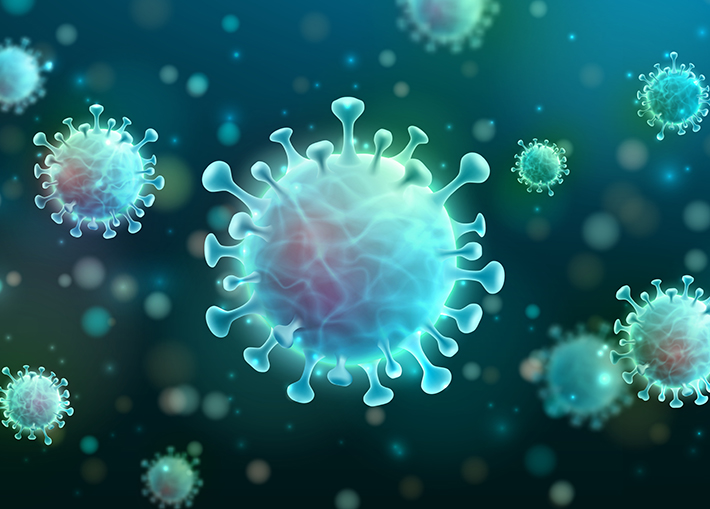
Surrogates and the Fight Against COVID-19
The world is currently in the midst of a global health crisis related to COVID-19. The novel coronavirus (SARS-CoV-2), the virus that causes COVID-19, is a particularly virulent strain. It is highly contagious and spreads through the air as well as on surfaces, where it can survive for an unknown amount of time, and the variables that impact survival are not characterized.
A new task force, part of ASTM International’s subcommittee on antimicrobial agents (E35.15), has joined the effort to combat the virus.
Formed as part of the committee on pesticides, antimicrobials, and alternative control agents (E35), the task force is dedicated to developing standard definitions, classifications, biological test methods, and recommended practices related to the efficacy of antimicrobial agents and devices. The group’s work resulted in a list of surrogate viruses that may be used for research, including surface disinfection, to increase our collaborative understanding of SARS-CoV-2 ability to persist in the environment.
READ MORE: Standards for Medical Face Masks and Protective Clothing
“We are committed to helping our members by facilitating a task group with the goal of identifying suitable surrogates for COVID-19 that can be tested in Biosafety Level 2 [BSL-2] labs. This will accelerate our knowledge of this virus by improving collaboration by increasing the number of laboratories qualified to perform testing,” said committee chair Darla Goeres, Ph.D., a research professor with the Center for Biofilm Engineering at Montana State University. “The subcommittee is comprised of scientists with vast knowledge in this subject area, and I have been amazed at the speed with which they responded to our request and their willingness to participate in a productive dialog.”
The primary question facing the task force was surrogate selection for the SARS-CoV-2 virus for use in hard-surface disinfectant efficacy testing. Once that surrogate - or surrogates - has been selected, collaborative disinfectant efficacy testing can begin, so the group is developing a list of as many as five surrogates for the SARS-CoV-2 virus. This list is intended to be a living document of coronavirus surrogates, eventually to be used as a reference and springboard for collaborative testing.

Research on surrogates will help researchers create disinfectants that can neutralize the COVID-19 virus.
Once gathered, this list will help inform a number of different research needs related to the novel coronavirus, including strain-to-strain comparisons, debris selections, test methods, improving statistical confidence, and optimizing test conditions for temperature and humidity. Agent–surrogate comparison testing is also needed in order to ascertain if SARS-CoV-2 has unnatural environmental or antimicrobial persistence compared to other coronaviruses.
According to the leadership of E35.15, the virus-selection criteria include but are not limited to, enveloped viruses, respiratory viruses, public availability of the virus as well as its cell line, mammalian origin with a preference for human viruses, and viruses that are categorized as BSL-2, which is a biosafety rating for laboratory facilities based on their biological containment level.
“Currently, there are numerous calls for research proposals, but not many laboratories are actually certified to work with BSL-3 [Biosafety Level 3] organisms, which requires special containment and certification,” explains Goeres. “The guidance document [being produced by the task force] will provide researchers with BSL-2 surrogates that have been vetted by a group of experts.”
FOR YOU: Standards and Infectious Disease
This part of the task force’s work is key, because BSL3 labs are currently inundated with testing work for the novel coronavirus. By including BSL2-level labs, the group’s intention is to empower many more labs to contribute to coronavirus research and mitigate the risk of anti-collaboration, a cornerstone of ASTM International.
The task force has recently recruited members and is gathering surrogate suggestions. The eventual list it is assembling will be subject to change based on further testing.
The mobilization of this effort is an important step forward in the global fight against COVID-19 and according to Goeres, the group hopes it will expand society’s knowledge of how best to combat this threat.
READ the committee's Guidance on SARS-CoV-2 Surrogate Selection.
Tim Sprinkle is a freelance writer based in Colorado Springs, Colorado. He has written for Yahoo, The Street, and other websites.
 SN Home
SN Home Archive
Archive Advertisers
Advertisers Masthead
Masthead RateCard
RateCard Subscribe
Subscribe Email Editor
Email Editor